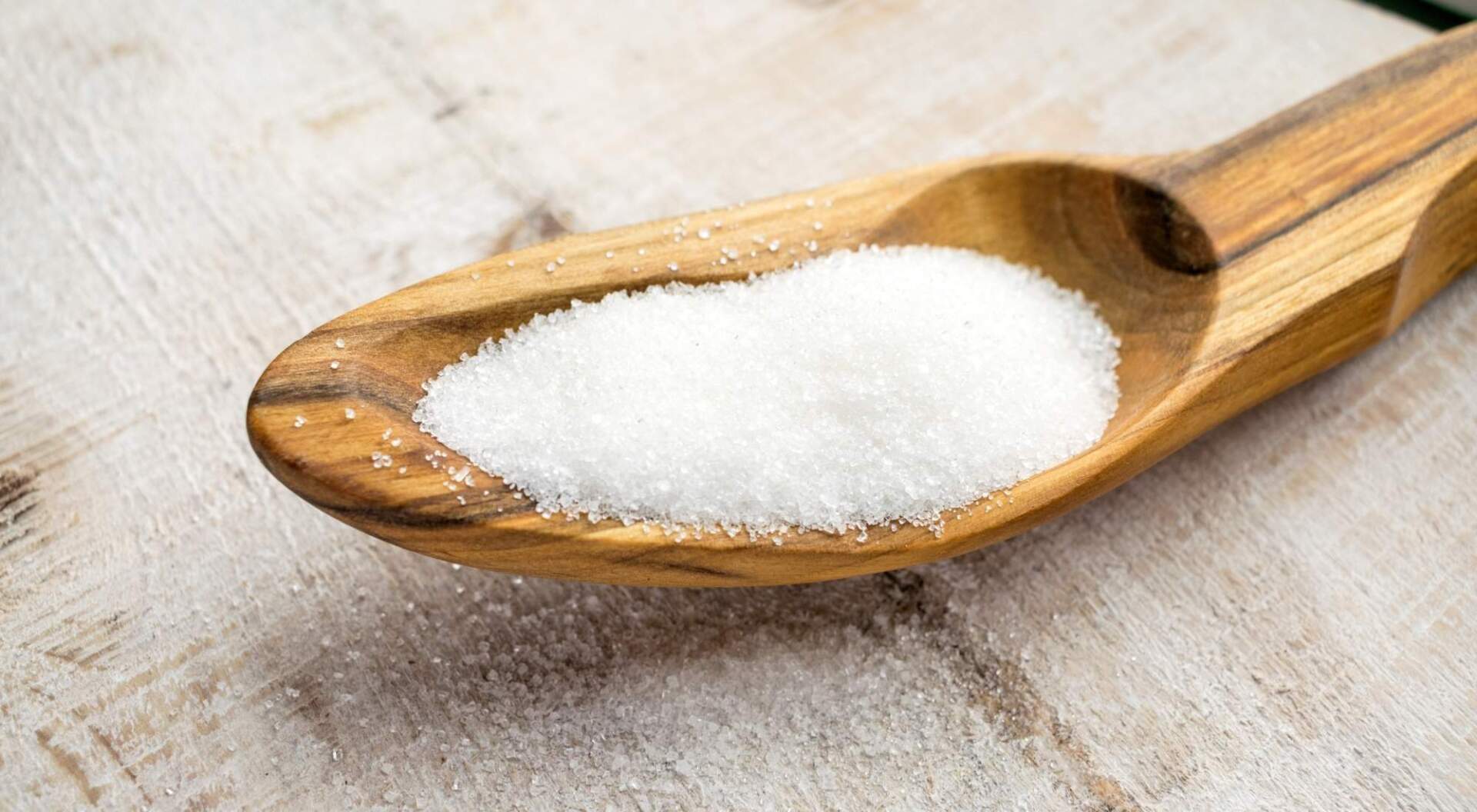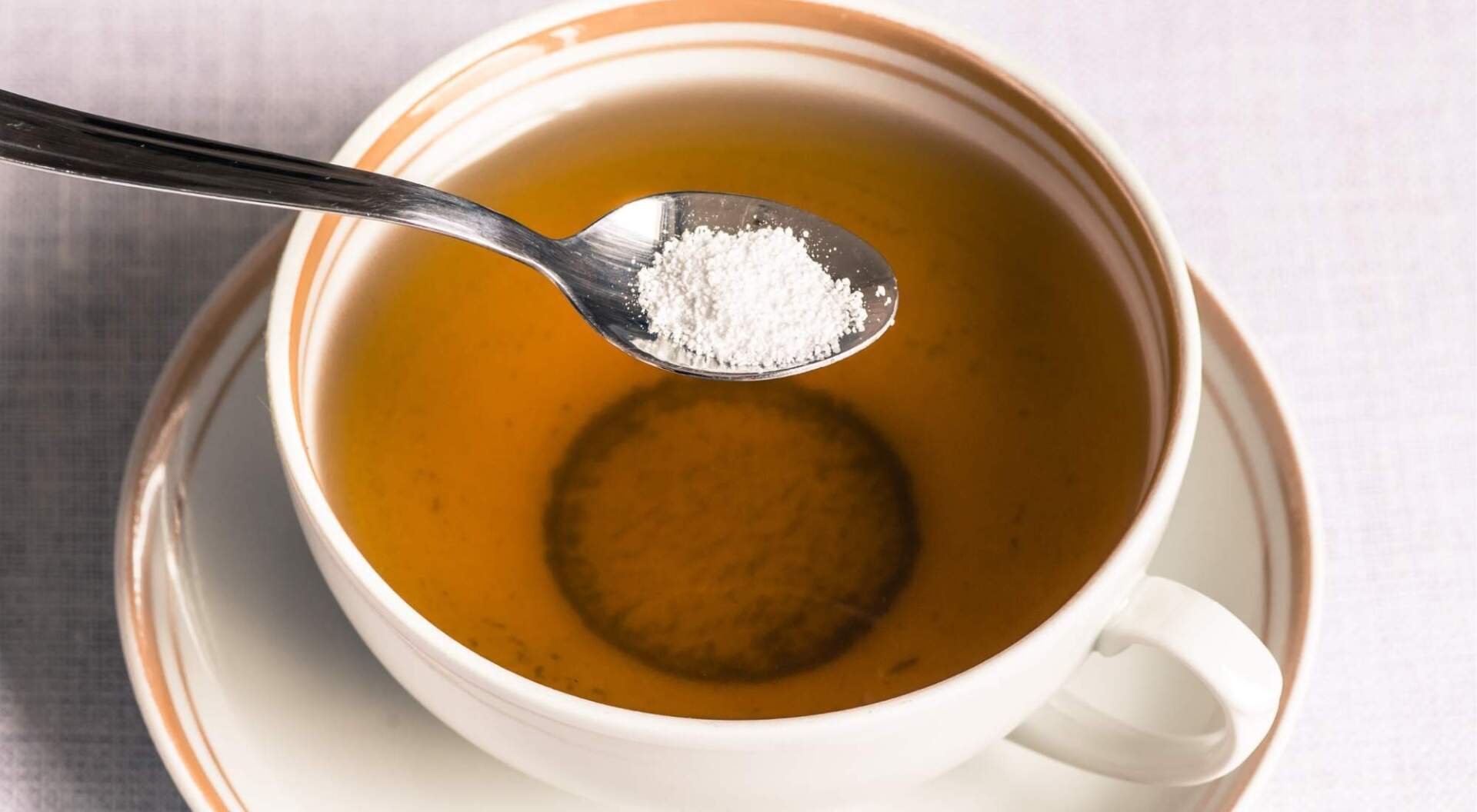Breaking Up With Aspartame: Withdrawal Symptoms and How To Overcome Them
Regular exercise. Quality protein. Plenty of fresh air.
You’re trying your best to live a healthy lifestyle, and your diet soda addiction is next on the list of bad habits to conquer.
But you’ve heard the rumors, and the symptoms of aspartame withdrawal sound brutal.
There’s got to be a better way.
Good news — there is!
Here, we give you the lowdown on aspartame, including factors that affect withdrawal, aspartame withdrawal symptoms, and how to survive — and thrive — as you navigate aspartame withdrawal.
Table of Contents
What Is Aspartame?
Aspartame is an artificial sweetener that’s marketed as NutraSweet®, Equal®, and Sugar Twin®.
Since the early 1980s, consumers have been fooled into believing aspartame is a healthier alternative, since it’s a low-calorie sweetener with a much sweeter taste than sugar — about 200 times sweeter.
Where Is Aspartame Found?
A few common products that contain aspartame include:
- Sodas
- Breakfast cereals
- Gelatin
- Chewing gum
- Yogurt
- Ice cream
- Sugar-free cocoa mix
- Cough drops
- Gummy vitamins
- Many prepared foods and drinks labeled as “diet” or “sugar-free”
- Some medications
Considering its prevalence in our food, it’s no wonder so many people struggle with aspartame withdrawal.
At HealthierU, we can help you navigate the withdrawal symptoms from aspartame and other additives to solve many of the health issues caused by artificial sweeteners.
Reach out today for a free consultation.
Are There Withdrawal Symptoms From Aspartame?
Yes. Research has found that individuals who consume large quantities of aspartame may suffer from adverse withdrawal reactions.
The most common aspartame withdrawal symptoms include:
- Headache
- Anxiety
- Muscle pain
- Nausea
- Mood swings
- Digestive issues
- Skin concerns
- Eye problems
- Cognitive symptoms
3 Factors That Influence Aspartame Withdrawal Symptoms
#1: Length of Consumption
Are you a big diet soda drinker who’s been consuming aspartame for years?
If so, you’re likely to have more severe and even longer aspartame withdrawal symptoms than someone who just has a random can of Diet Coke every so often.
#2: Amount Consumed Daily
Sticking with the soda example, the average carbonated drink has 180 mg of aspartame.
If you drink multiple servings a day, you may experience more significant aspartame withdrawal symptoms than someone who chews aspartame-sweetened chewing gum, which has only 6 to 8 mg per stick.
#3: Individual Physiology
Some people naturally have an easier time coping with the cravings of withdrawal, while others struggle. Factors that can influence your personal timeframe for aspartame withdrawal include things like:
- Metabolism
- Sensitivity to aspartame
- Underlying health conditions like phenylketonuria (PKU)
- Medications
Are you ready to kick aspartame to the curb? Seeking help from a professional can help speed healing and reduce the severity and length of your aspartame withdrawal symptoms.
Schedule a free consultation with HealthierU today.
7 Common Aspartame Withdrawal Symptoms
#1: Anxiety
Research reveals that both ingesting and detoxing from aspartame can lead to anxiety.
Artificial sweeteners, such as aspartame, are neurotoxins that can disrupt the normal function of the brain and nervous system, leading to increased symptoms of anxiety. Take it away, and it can even increase that anxiety.
#2: Headaches
Quitting aspartame (and caffeine, if quitting soft drinks) can lead to headaches and migraines for many people.
Insomnia can be another symptom of aspartame withdrawal, which can also lead to headaches.
Taking pain relievers, getting good rest, and staying hydrated with water can help take the edge off while you walk the road of aspartame withdrawal.
#3: Mood Swings
When you remove aspartame from your diet, you may experience mood swings ranging from happiness to sadness to depression.
Aspartame withdrawal can even lead to panic attacks, which cause thoughts of fear along with excessive perspiration and a rapid heartbeat.
#4: Concentration
Feeling mentally foggy and struggling to focus during aspartame withdrawal is a common symptom for many.
However, it’s important to note that once you complete your detox, most people report that they have an increase in concentration and fewer deficits in attention and hyperactivity.
#5: Weight Changes
If you’ve been going the diet soda route to try to lose weight, you might find it’s actually having the opposite effect.
Aspartame (while consuming and during detox) can influence food cravings and hunger, and you may find you lose more weight when coming off of aspartame.
#6: Sleep Changes
Aspartame withdrawal can cause changes to your sleep cycle, including contributing to insomnia. If you’re also cutting caffeine, your sleep can be impacted even more.
Thankfully, this symptom should subside in a week or two of detox.
#7: Gastrointestinal Symptoms
When going through aspartame withdrawal, people often experience gastrointestinal issues that may include:
- Upset stomach
- Abdominal pain
- Painful swallowing; and
- Diarrhea
Commonly Asked Questions About Aspartame Withdrawal
How Does the Body Get Rid of Aspartame?
As your body digests aspartame, it breaks it down into phenylalanine, aspartic acid, and methanol. These are then absorbed into your bloodstream and metabolized into your system.
What Happens When You Stop Aspartame?
When making the decision to stop using aspartame, you may experience negative aspartame withdrawal side effects, including cravings and headaches.
On the positive side, you may also enjoy the benefits of positive changes, like better gut health and improved taste sensitivity.
How Long Does It Take To Get Aspartame Out of Your System?
It can take 14–30 days to get through the symptoms of aspartame withdrawal.
This timeframe can vary depending on factors like:
- How long you’ve been consuming aspartame
- How much aspartame you consume daily
- Trying to quit cold turkey vs. gradually removing aspartame from your diet
Natural Aspartame Alternatives
You know by now that aspartame is bad for your health, but before you jump back over to sugar — which is high in calories and has zero nutritional value — consider natural alternatives.
Instead of aspartame, try sweetening your foods and drinks with:
- Stevia
- Monk fruit
- Honey
- Agave nectar
- Date sugar
- Cinnamon
- Nutmeg
Don’t Suffer Through Withdrawal From Aspartame Alone — HealthierU Can Help!
It’s a no-brainer that aspartame is bad for you. And that aspartame withdrawal symptoms can feel even worse. The good news is that you don’t have to conquer your addiction alone.
HealthierU can help. As specialists in health and wellness, HealthierU can help by offering Nutrition Response Testing.
Struggling with an aspartame addiction? Already trying to quit on your own and battling withdrawal symptoms?
Dr. Donna Sergi believes in a holistic approach to nutrition. She offers more than 25 years of experience and a lifetime committed to health and wellness.
That’s why HealthierU develops highly personalized programs, including everything from:
- Diet
- Whole food supplementation; and
- Exercise
… for each and every individual.
Don’t wait. Schedule your free consultation today.






